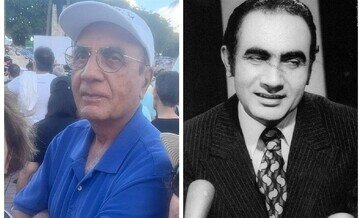SAVAK’s chief torturer Parviz Sabeti to stand trial in Florida

TEHRAN – A U.S. federal court in Florida has agreed to proceed with a landmark case against Parviz Sabeti, a senior official of Iran’s notorious pre-Islamic Revolution security organization, SAVAK, accused of overseeing systematic torture of political prisoners.
Survivors of the Pahlavi regime say the ruling represents the first genuine opportunity in nearly half a century to hold one of the most feared men of that era legally accountable.
The charges against Sabeti
Sabeti, born in 1936 in Semnan, rose to become head of SAVAK’s Third Directorate—the branch responsible for internal security—and later deputy director of the entire organization between 1973 and 1978. Survivors describe him as “the chief architect of torture in Iran,” accusing him of institutionalizing practices such as forced confessions under extreme physical and psychological abuse.
Three former political prisoners, now U.S. residents aged 65, 72, and 85, filed a lawsuit in 2023 demanding $225 million in damages. They accuse Sabeti of orchestrating their arrests, supervising interrogations, and enabling methods of torture that included electric shocks, suspension by the wrists, genital mutilation with attached weights, and the notorious Apollo device—an iron chair with a metal mask designed to amplify victims’ screams.
The Florida court rejected Sabeti’s request to dismiss the case, ruling that the evidence provided by the plaintiffs—supported by historical records—was sufficient to hold him accountable under the Torture Victim Protection Act. The court also acknowledged documented threats against the plaintiffs and their lawyers, granting them the right to proceed under pseudonyms.
Most importantly, the court dismissed Sabeti’s claim that the case should be thrown out due to the statute of limitations, ruling instead that the plaintiffs had provided enough evidence to justify suspending the time bar. In other words, justice delayed did not mean justice denied.
Survivors’ accounts versus media rebranding
After fleeing Iran with his wife during the Revolution, Sabeti lived in obscurity for nearly four decades, operating a real estate business in Florida under names such as “Peter Sabeti.”
His public reemergence came only during the 2022 riots in Iran, when he was seen at gatherings of monarchist exiles in the U.S.
That reappearance was not accidental. Over the years, Persian-language satellite networks outside Iran have played a central role in reshaping Sabeti’s public image. In glossy documentaries, he was portrayed not as a torturer but as a pragmatic security official who defended Iran against Cold War-era subversion. In these programs, Sabeti denied involvement in torture, insisting that accusations against him were fabricated.
This effort at image rehabilitation coincided with a broader attempt by monarchist groups to soften memories of SAVAK and distance Reza Pahlavi, the Shah’s son and current opposition figure, from the organization’s dark legacy. For critics, however, the attempt to whitewash Sabeti’s past only underscored the unresolved trauma of thousands who suffered under SAVAK.
The court recognized historical records confirming that Sabeti knowingly directed operations in the Third Directorate and Joint Anti-Sabotage Committee, enabling torture carried out by his subordinates.
For survivors and advocacy groups such as the Iranian Collective for Justice & Accountability (ICJA), the case represents far more than compensation. It is about recognition. “The plaintiffs are not seeking political gain or revenge,” the coalition stated. “They want truth, accountability, and the dignity that comes from having their suffering recognized by a court.”
